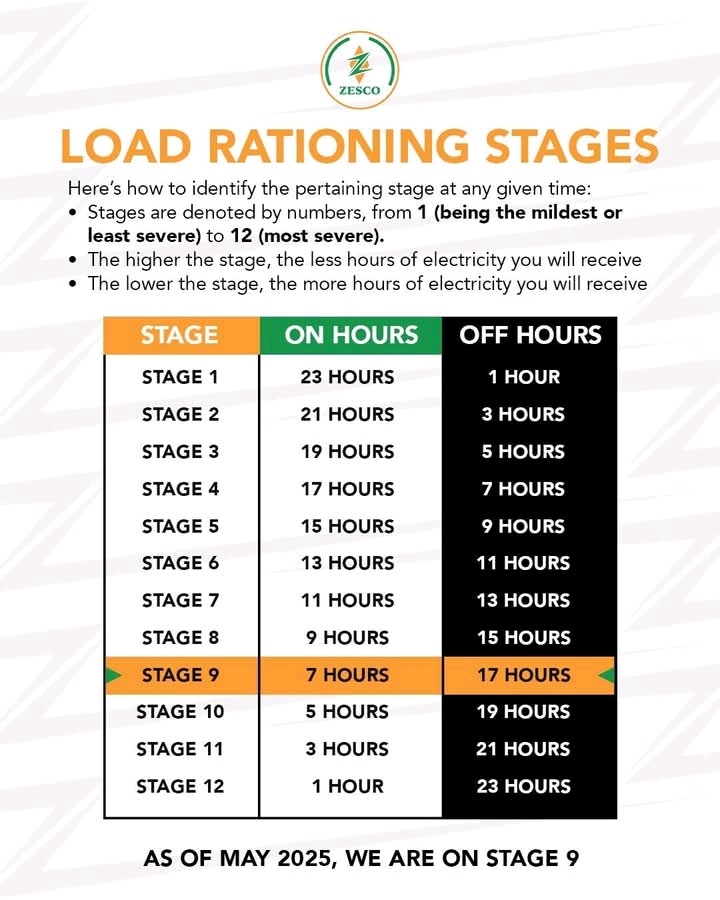SEVEN HOURS OF POWER, ZERO HOURS OF LEADERSHIP
…Activist blasts UPND government over energy crisis
Lusaka… Wednesday May 21, 2025 – A leading opposition activist has sharply criticised the UPND government, condemning it for gross mismanagement of the country’s energy sector and failing the Zambian people in a time of crisis.
Mr. Thompson Luzendi, a member of the Socialist Party and outspoken political activist, issued a statement earlier today, declaring that Zambia’s current electricity crisis was “avoidable” and largely the result of “staggering incompetence, negligence, and lack of leadership” from those in power.
He pointed to ZESCO’s recent load management schedule—now at stage 9—as evidence of the crisis, highlighting that most Zambians were receiving only seven hours of electricity per day.
Mr. Luzendi contended that the schedule was more of a “public relations stunt” than a real solution, stating that even the limited hours of power supply were not consistently delivered.
According to him, unannounced blackouts continued to disrupt homes, small businesses, and essential services nationwide.
Mr. Luzendi lamented that poverty and unemployment had worsened since the UPND assumed office in 2021, despite campaign promises of transparency, better service delivery, and a people-first approach.
He accused the government of instead delivering “chaos, excuses, and an increasingly authoritarian tone.”
The activist further criticised ZESCO, the state-run power utility, labelling it a “symbol of broken promises” and a bloated institution plagued by scandals, poor planning, and what he called “elite capture.”
He argued that the government had failed to diversify the country’s energy sources despite repeated expert warnings about the risks of over-reliance on hydroelectricity.
“The drought is not new,” Luzendi said, insisting that reduced water levels at the Kariba Dam could not be used as a blanket excuse.
“What is new, and unacceptable, is the government’s failure to prepare for such shocks and to communicate effectively with citizens.”
He also raised alarm over alleged corruption in the energy sector, citing “credible reports” of irregular contracts, questionable fuel deals, and inflated tenders involving politically connected individuals.
Despite significant financial losses, Luzendi noted, no senior official had been held accountable.
He accused the government of promoting a two-tiered system of justice, where ordinary citizens faced punishment for peaceful protests and online dissent, while politically connected individuals remained above the law.
“This isn’t the Zambia that voters envisioned in August 2021,” he said.
Calling on Zambians to take a stand, Luzendi urged citizens to reject “excuses, mediocrity, and selective justice,” and to resist the normalization of rolling blackouts and energy poverty.
He warned that unless there was real, structural change, the darkness facing the country would extend beyond the power grid to encompass its institutions, economy, and democracy.
“Zambia is not short of talent, ideas, or hope,” he concluded. “What we lack today is courageous leadership… Until that changes, the blackouts will continue.”
Luzendi ended his statement with a political call to action, encouraging citizens to “vote them out in 2026.”
SEVEN HOURS OF POWER, ZERO HOURS OF LEADERSHIP
